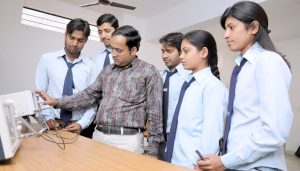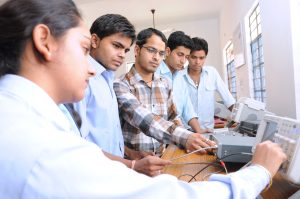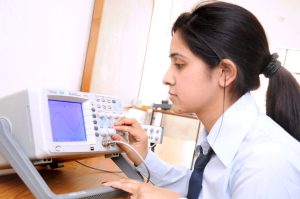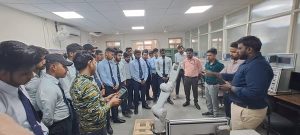Department of Electronics and Communication Engineering
The Department of Electronics and Communication Engineering (ECE) at Aravali Institute of Technical Studies (AITS) was established in 2008. Our core mission is to equip students with the essential technical knowledge and professional skills required to excel in the rapidly evolving field of Electronics and Communication Engineering, while also fostering significant research in this domain.
Department Vision
To provide quality education in order to develop outstanding technocrats and researchers with novel ideas for innovations to meet social and industrial expectations through entrepreneurship and advanced research.
Department Mission
- To establish as a center for quality education in order to develop and deliver quality academic programmes in emerging and innovative fields of communication engineering to empower the students and to meet industry standards.
- To nurture students with technical, professional and ethical standards so that they can empower the nation with their engineering skill and knowledge.
- To develop and establish Centre of Excellence by industrial tie-ups and research promotional activities to fulfill social and technological requirements.
Our Strengths
- Experienced Faculty:The ECE department is a dynamic and vibrant hub, boasting 24 highly qualified, experienced, and dedicated faculty members. Their expertise ensures a rich learning environment for our students.
- Industry-Relevant Curriculum:The curriculum, framed by Rajasthan Technical University (RTU), places strong emphasis on design principles and the development of cutting-edge technologies. Key areas of focus include:
- Communication Models
- Signal Processing
- Embedded Systems
- VLSI (Very Large Scale Integration)
- Faculty Expertise:Our faculty’s major areas of specialization span across critical domains such as Communication Systems, Computer Networks, Signal Processing, Instrumentation, RF and Microwaves, VLSI Systems, and MEMS (Micro-Electro-Mechanical Systems).
- Comprehensive Programs:We offer both undergraduate (B.Tech.) and postgraduate (M.Tech.) programs:
- Tech. in Electronics and Communication Engineering
- Tech. in Digital Communications







